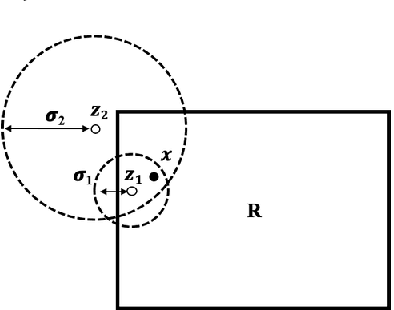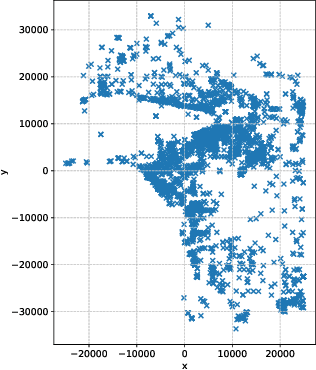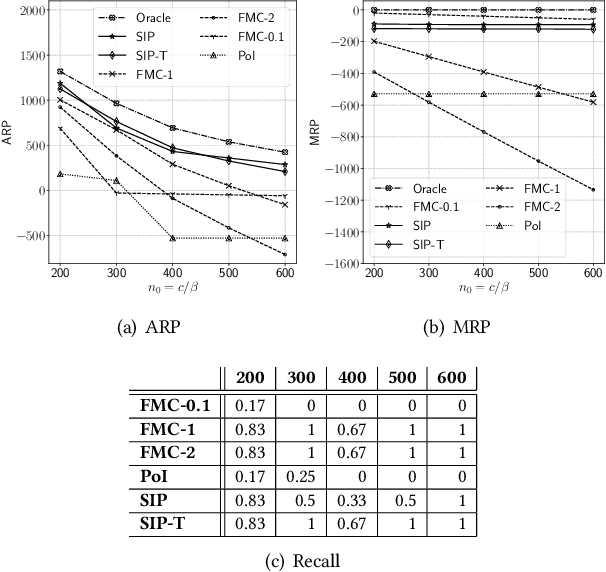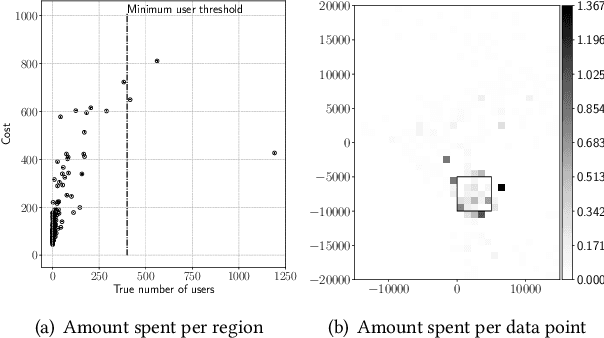Spatial Privacy Pricing: The Interplay between Privacy, Utility and Price in Geo-Marketplaces
Paper and Code
Sep 04, 2020



A geo-marketplace allows users to be paid for their location data. Users concerned about privacy may want to charge more for data that pinpoints their location accurately, but may charge less for data that is more vague. A buyer would prefer to minimize data costs, but may have to spend more to get the necessary level of accuracy. We call this interplay between privacy, utility, and price \emph{spatial privacy pricing}. We formalize the issues mathematically with an example problem of a buyer deciding whether or not to open a restaurant by purchasing location data to determine if the potential number of customers is sufficient to open. The problem is expressed as a sequential decision making problem, where the buyer first makes a series of decisions about which data to buy and concludes with a decision about opening the restaurant or not. We present two algorithms to solve this problem, including experiments that show they perform better than baselines.
 Add to Chrome
Add to Chrome Add to Firefox
Add to Firefox Add to Edge
Add to Edge